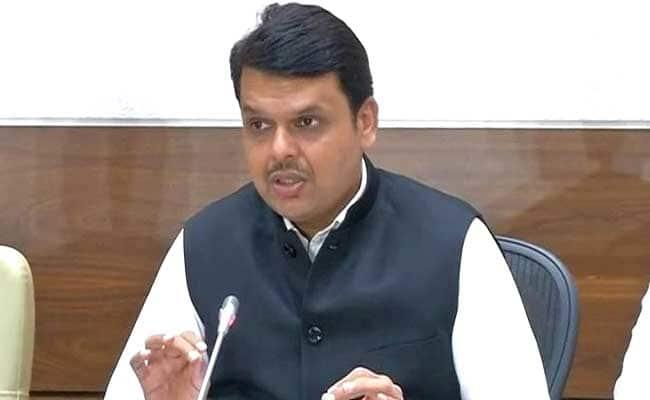In Big Setback to Fadnavis, SC Sets Aside Clean Chit on ‘False’ Affidavit Case

Image Courtesy: NDTV
New Delhi: In a major setback to Maharashtra Chief Minister Devendra Fadnavis ahead of the Assembly elections in the state, the Supreme Court on Tuesday set aside the Bombay High Court order that gave him a clean chit in the case of suppression of criminal matters in his poll affidavit in 2014, according to news agency PTI.
Directing the trial court to proceed in the case, a bench headed by Chief Justice of India Ranjan Gogoi, justices Deepak Gupta and Anirudhha Bose observed that prima facie a case is made out against Fadnavis under Section 125 of the Representation of Peoples Act, according to LiveLaw.
The go ahead for prosecution of Fadnavis is a huge a jolt for the Bharatiya Janata Party (BJP) leader who is seeking re-election as Maharashtra Chief Minister in the elections later this month. If the allegations against him are proved right, Fadnavis could face the prospect of disqualification from contesting polls.
The case pertains to a petition filed by one Satish Uke, who had sought prosecution of Fadnavis under provisions of the RP Act for not furnishing details of two pending criminal cases against him in his affidavit to the Election Commission in the 2014 Assembly elections. The trial court has taken cognizance of the matter, said the LiveLaw report. However, the Bombay HC had later cleared the Maharashtra CM.
Challenging the Bombay HC order, Ukey had moved the apex court.
On July 23, the Supreme Court, while reserving the verdict, had said that the alleged "omission" by Fadnavis of not disclosing information about two criminal cases in his election affidavit in the 2014 Assembly polls may be decided in the trial. The two cases pertain to allegations of cheating and forgery against Fadnavis and were filed in 1996 and 1998, respectively, but the charges were reportedly not framed.
According to Bar & Bench, Fadnavis, who contested from Constituency-52, South West Nagpur, “had submitted his nomination paper along with the requisite documents and affidavit in prescribed form, Form No. 26 as prescribed under Rule 4A of the Conduct of Elections Rules, 1961.”
According to the report, the affidavit filed in “Form No. 26 contained a declaration regarding the information that he was required to submit mandatorily, in particular, the information in terms of Section 33A (1) and (2) of the Representation of the RP Act, 1951, which required him to disclose information relating to any pending criminal case in which punishment prescribed was of imprisonment for two years or more, and a charge was framed by the Court of competent jurisdiction or those criminal cases in which he was convicted of an offence and sentenced to imprisonment for one year or more.”
According to India’s electoral law, the allegations against Fadnavis, of proved, provide for a two-year jail term for concealing or providing false information in poll affidavits.
“The law also stipulates that a person sentenced to jail for two years or more will be disqualified from contesting elections for that period and a further six years after release,” said a report in Hindustan Times.
Get the latest reports & analysis with people's perspective on Protests, movements & deep analytical videos, discussions of the current affairs in your Telegram app. Subscribe to NewsClick's Telegram channel & get Real-Time updates on stories, as they get published on our website.
























